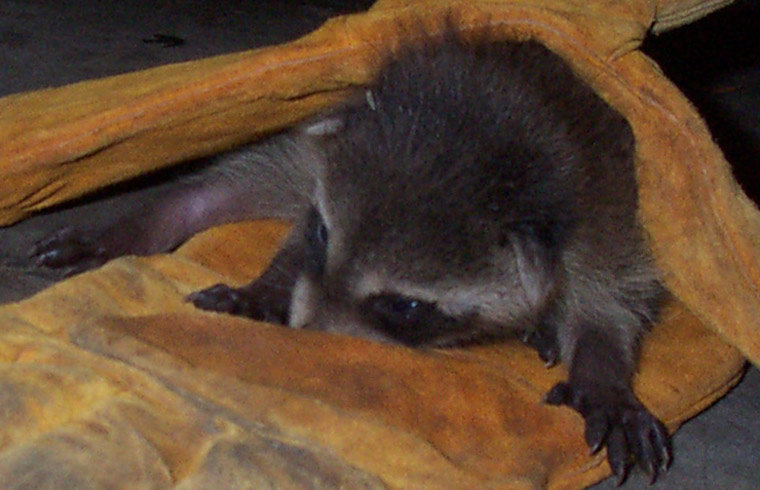- info@wildlife-removal.com
Call us for help in your town
Wildlife Removal Education
Raccoons & Homeowners Insurance: Am I Covered?
Need raccoon removal in your hometown? We service over 500 USA locations! Click here to hire us in your town and check prices - updated for year 2020.
You are usually NOT covered under your renters or homeowners insurance if you have a problem with rodents — rats and mice. These problems are classed as ones that could have been avoided. If the property owner had done a good enough job of inspecting and maintaining the property, making sure there are no available holes for potential wild animals to gain access, there wouldn't have been a rodent problem in the first place.

Also read about:
How to get raccoons out of the attic
How to remove raccoons from a house
How to keep raccoons away
Other wild animals, on the other hand, are slightly more determined and smart when it comes to breaking in your home and making it their own. They do not come under the same rules as rats or mice; a clause often referred to as the "vermin exclusion clause".
Raccoon problems are usually quite well established by the time you have evidence of a pest control problem. A raccoon can quite easily clamber onto your roof and get stuck in your chimney or find a way into your attic without your realising, and it only takes a while for her to make a comfortable bedding or nesting spot for her new, young family. In almost all cases, raccoons that break into the attic (or other areas of a residential or commercial building) are females, looking for a nesting spot. By the time you're aware you have a problem at all, you will have a raccoon mama with two to six kits in a well-established nest, which also means utter devastation to your back yard, any fruits, vegetables or crops you have growing out there, torn garbage bags, and a latrine filled with waste material that can and will spread a number of potentially fatal diseases. These diseases can be spread to animals — domestic, agricultural and wild, as well as people.
Many homeowners and renters insurance companies WILL NOT define raccoons as "vermin". This means that they are not included in the "vermin control clause," which states that you would be responsible for the removal and cleanup operation. You are likely to be covered by your insurance policy for raccoon damage, but a quick phone call will be able to verify that.
Before you do any work as far as raccoon removal or damage cleanup are concerned, make sure that you pick up the phone and give your insurance company a call first. The last thing you will want is to pay out a whole bunch of money, expecting to get it back … and then not.
Go back to the Raccoon Removal page, or learn tips to do it yourself with my How to Get Rid of Raccoons guide.
READER EMAIL:
Hi David, I have a question that I was wondering if you could answer for me. There were two about 3 to 4 week old babies and a mother up in our ceiling, but they have been removed at this point. The trapper who removed them said their waste was very minimal. There was one latrine and he removed the feces and the urine soaked insulation from that area and then Lysoled it extensively. He said that was all that needed to be done. State Farm adjusters are suggesting that we now remove all the blow-in insulation with a machine, blow in new insulation, apply an anti-microbial agent to disinfect, and then seal the floor of the attic to make sure there are no loose bacteria or toxins up there. Is it safer to go the State Farm route, or is the cleanup that the trapper did perfectly fine? I am concerned as I am pregnant with twins and want to do what is safest for my family and their health, without, of course, spending unnecessary money. Thank you so much for your time. I look forward to your reply. Have a nice day! Kelly
My response: I personally would not do any further cleanup if it was my home, but I am not qualified to tell you what to do. State Farm adjusters? How did they become aware of the issue? Is State Farm homeowner's insurance going to cover to cost?
Hi David, When we first found out we had raccoons, we filed a claim with our home insurance, State Farm, because we weren’t sure how much damage there would be. Now that the damage seems to be minimal, it seems like we wouldn’t need to go through with the claim. They are willing to cover the cost of the attic rehab that they are proposing, but only after we pay our very high deductible, which is much more than we’d be paying if we just stuck with the clean up our trapper provided us with. Hearing you would not do any further cleanup, along with my trapper saying the same, makes me feel like what State Farm is proposing is unnecessary. Thank you so much for your response, Kelly


















